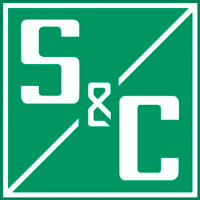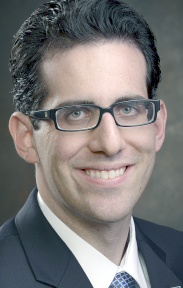Agenda | Note: Subject to change |
|
10:00 am - 11:30 am Pre-Conference Tour of the Microgrid Project at Illinois Institute of Technology details
1:30 - 3:00 pm Pre-Conference Tour of S&C Electric's Smart Grid and Microgrid Demonstration Center details
7:30 - 8:30 Registration and Continental Breakfast
8:30 - 9:00 am The Journey to Grid Modernization
Where is the grid heading? First we need to look at how the grid has evolved. This presentation will cover the highlights on how utilities are transforming their grids for the future and their results. The modern grid will be able to host new technologies, such as microgrids. Topics discussed will be technology, financing and regulations.

|

|
|
9:00 - 10:00 am Grid Modernization: Policy, Market Trends, and Directions Forward
Over the past decade, several utilities and commissions across the U.S. have made investments into new grid technologies, tools, and techniques to modernize the electric grid. As some of these investments are reaching full implementation, it provides opportunities for other utilities and their regulators who are contemplating similar investments to learn from the experience of the "early adopters." While such grid modernization efforts promise large benefits for utilities, customers, and society as a whole in the long term, they come with a big price tag that can, at least in the short-term, increase rates. In this session, we will review the experience with Grid Modernization investments to date and highlight lessons learned; summarize how these technologies have benefitted customers and utilities: and discuss alternative cost recovery mechanisms and business cases related to these investments.


|
|
10:15 - 11:30 am Grid Modernization Initiatives Nationwide: The Good, the Bad, and the Ugly



|
|
11:45 - 12:15 pm Keynote Address

|
|
1:15 - 2:30 pm Unlocking the Consumer Benefits of Data Analytics
From smart meters, Customer Information Systems and other sources, energy data is now more widely available than ever before. This trove of data is already delivering benefits to consumers, including more accurate billing and more reliable forecasts and alerts, but looking forward, what do consumers really want to see from this data in terms of programs & services? In this session, we will discuss findings from a survey on what consumers want their utilities to do with their energy usage data and how consumers feel about data privacy, data sharing and related topics. This session will also provide recommendations on improving customer engagement in analytics-driven programs & services.
- What consumers want from their energy usage data
- What makes consumers engage in an analytics-driven program
- How consumers feel about energy data sharing and privacy
- Key recommendations for program design and customer outreach




|
|
2:30 - 3:00 pm Coffee Break
3:00 - 3:45 pm Maximizing Systemwide Value of DER with Advanced Control Technologies
Utility executives must navigate evolving technologies on the grid and in the control room - as well as changing regulatory factors. This session examines the Austin SHINES (Sustainable and Holistic Integration of Energy Storage and Solar Photovoltaics) project, which provides a holistic model for utilities to maximize economic and operational value in high-penetration DER systems.
- DER optimization insights for utilities across market segments and structures
- Balancing customer and utility economic benefits to maximize overall value and reduce costs on a systemwide basis
- Control intelligence for determining the highest value use cases for utilities on a continuous basis
- Best practices for integrating behind-the-meter and utility scale renewables and energy storage

|

|
|
3:45 - 4:00 pm Coffee Break
4:00 - 5:00 pm Building a Digital, Balanced Grid Today to Enable a Sustainable Future
Forward-thinking policymakers, utilities, and innovators are working to define and accelerate the delivery of a balanced, sustainable grid for the future. Various states and regions are currently working to establish customer and third-party data-access and customer-privacy frameworks, best practices for DR and DER integration, streamlined click-through authorization for customers' sharing, and more. Utilities are providing new data-enabled services and digital customer programs to empower and engage customers in energy-management and grid-balancing activities; saving customers costs while mitigating impacts on the environment. Technology companies and industry stakeholders are bridging the gap to assist with both technical expertise for grid modernization requirements as well as offering open, standards-based solutions.
- How are open standards, utility customer data, and data-sharing technologies being leveraged to benefit the utility and the customer?
- Utility best practices: Cost-effective implementation models; highly performing digital customer solutions
- Midwest leadership: Legislation to unleash customer energy data; protect customer privacy
- California: Lessons learned and an update on proceedings to streamline customer web navigation for authorizations ("click-through")
- Looking forward: What to expect in 2020



|

|

|

|
5:00 - 6:00 pm Drink Reception
8:00 - 9:00 am Continental Breakfast
9:00 - 9:30 am Optimizing Operational Execution of Grid Modernization Programs Within Utilities

|
|
9:30 - 10:45 am Driving on Sunshine: The Dynamic Role of Managed Charging
Governments across the world are issuing ambitious plans to decarbonize electric and transportation systems. This dual decarbonization effort to increase electric vehicles (EVs) and renewable generation will create challenges for electricity grids, but also presents an immense opportunity for electric vehicles, i.e. "energy storage on wheels," to enable a more cost-effective, cleaner electricity grid, at a fraction of the cost than if supported solely by stationary energy storage. The convergence of these two revolutionary market trends will forever transform the management of the electricity system, because renewable electricity is inflexible and intermittent, and the proliferation of electric cars will grow, alter and challenge historical patterns of electricity demand. However, smart grid EV charging, V1G, or managed charging can provide a range of grid services through intelligent modulation of unidirectional energy flows from the grid to the vehicle, such as real-time grid balancing, reducing energy costs, integrating intermittent renewable energy, reducing air pollutants and deferring expensive infrastructure upgrades.
- Managing and integrating distributed energy resources like solar and smart charging to achieve grid stability economically
- Business cases and models for next-gen smart grid services; what to expect from vehicle-grid integration in 2019
- Enabling consumer choice through BYOD programs
- Electric vehicle charging challenges and opportunities



|
|
10:45 - 11:15 am Coffee Break
11:15 - 12:30 pm Grid Modernization Stakeholder Panel Discussion: The Case Study of D.C.
D.C. is ranked #8 in the country in grid modernization according to GridWise Alliance's most recent grid modernization index report. This is mainly due to the ongoing and comprehensive MEDSIS - or Modernizing the Energy Delivery System for Increased Sustainability - D.C. Public Service Commission initiative to foster regulatory and technology innovation, with the goal of accelerating the District's transition to a smart, modern, customer-centric, and clean energy system without compromising affordable rates, safety, and reliable service. From August 2018 to May 2019, stakeholders engaged in six working groups tackling key grid modernization topics, like non-wires alternatives to traditional utility infrastructure investments, distributed energy resource (DER) integration, and future rate design models. As you can imagine, it takes a village of engaged stakeholders to tackle these complex issues and develop thoughtful solutions.
Learn about the grid modernization process the Commission has embarked on from a panel of key stakeholders in the District. The panel will discuss the components of successful stakeholder engagement and how collaborative grid mod initiatives can move past education and on to concrete, actionable recommendations. The panel will discuss the specific recommendations coming out of each working group for the Commission's consideration. Hear from the key stakeholders who got together and developed enhanced distribution planning processes, policies on DER ownership, regulatory frameworks for microgrids, and many more of the regulatory, policy, and operational topics around grid modernization.





|
|
1:30 - 2:00 pm Use Case Approach and Practical Methodologies for Integrating Grid Sensing, Measurement and Control Technologies
This session will present a structured use case example that leading utilities such as ConEdison are using to help identify, delineate and integrate all of the required elements that are necessary for successful execution of control strategies. The presenter will detail an examination of this process that is undertaken to help in the requirements definitions and interfaces. The sub-element of this process will include areas such as:
The results of this approach is used to create an overall systems perspective based on the Smart Grid Interop Framework.
- Insights into a structured way of examining all of the elements that need to be integrated to deliver results
- Harmonizing elements with other utility efforts using the SGIP Framework
- How a use case methodology can drive functional and non-functional requirements

|
|
2:00 - 2:30 pm Enabling Demand Response and Customer-Owned Energy Storage for Increased Resiliency and Reliability
Utilities are seeking better ways to engage with customers, incentivize and manage load growth and variability, operate more efficiently, and improve reliability and resilience. This session dicusses how to better manage and optimize demand response programs as well as customer- and utility-owned solar PV plus energy storage devices to provide improved reliability and resiliency for changing loads within distribution networks. This combines utility customer service and engagement with operations, planning, and IT groups to provide enhanced options for localized peak shaving and shifting as well as improved customer reliability and resiliency. We will look at how analysis and optimization of customer and utility-owned solar and energy storage plus demand response from a combined energy and economic perspective can enhance customer satisfaction while improving utility operations and planning.

|

|
2:30 - 3:00 pm Applying Intelligent Fast Load Shed Using IEC 61850 GOOSE
Industrial facilities with co-generation are in critical need of load shedding to prevent collapse of the cogeneration assets. Load shedding should be sub-cycle speed to manage thousands of distributed loads within a facility. This presentation describes the capabilities of such a fast load shedding scheme spanning across a wide array of relays provided by various vendors and potentially a large quantity, and a case study system and experience of applying such a system. The fast load shed scheme discussed utilizes a proven system and makes it easy to configure larger and more complex load shed schemes.
The actual system discussed is operational at a US Naval Shipyard. Lessons learned from this case study regarding fast load shed scheme deployment, testing and operations will be examined.

|

|



















